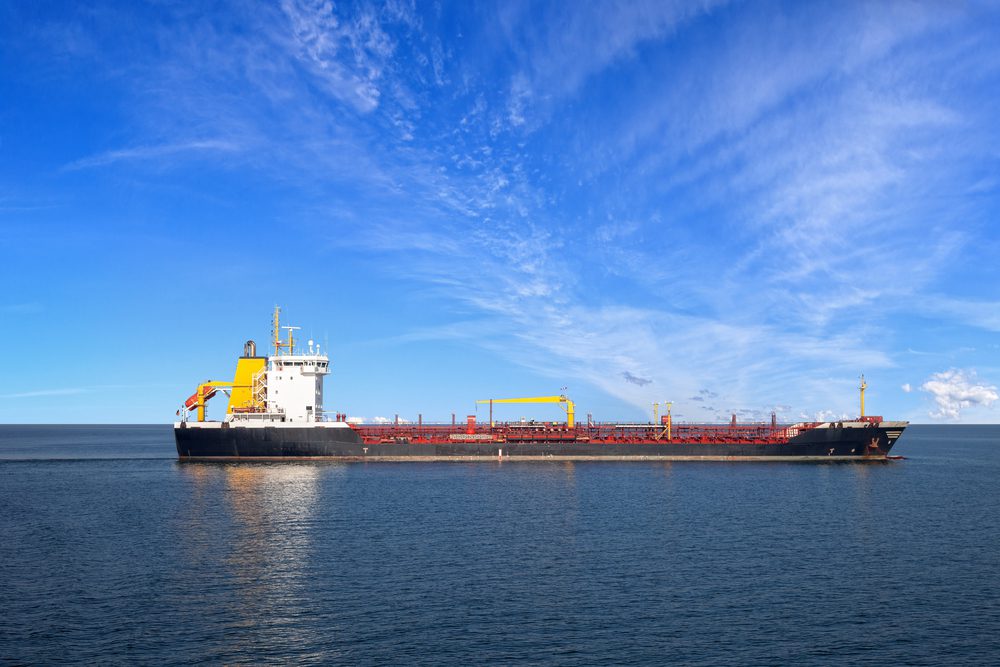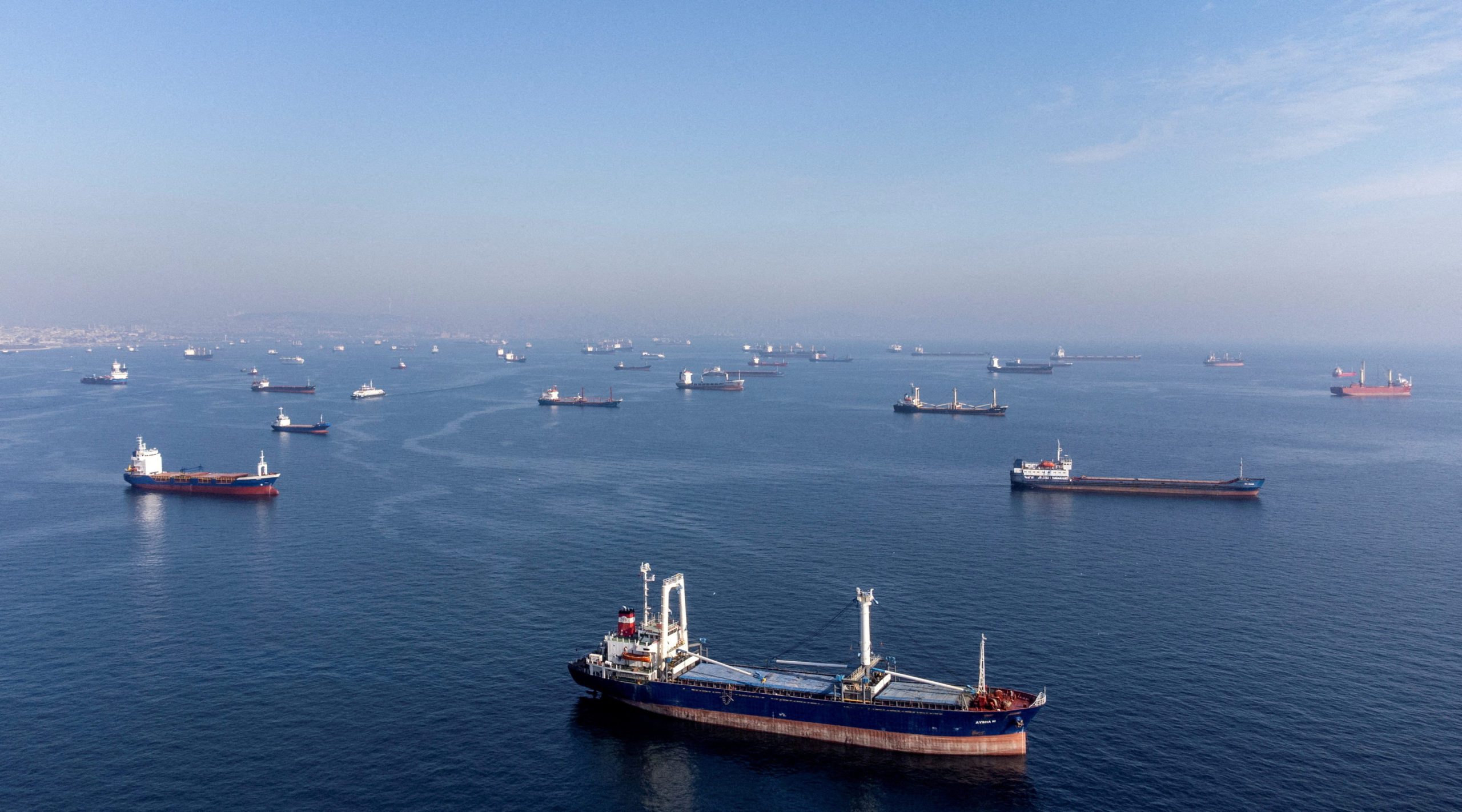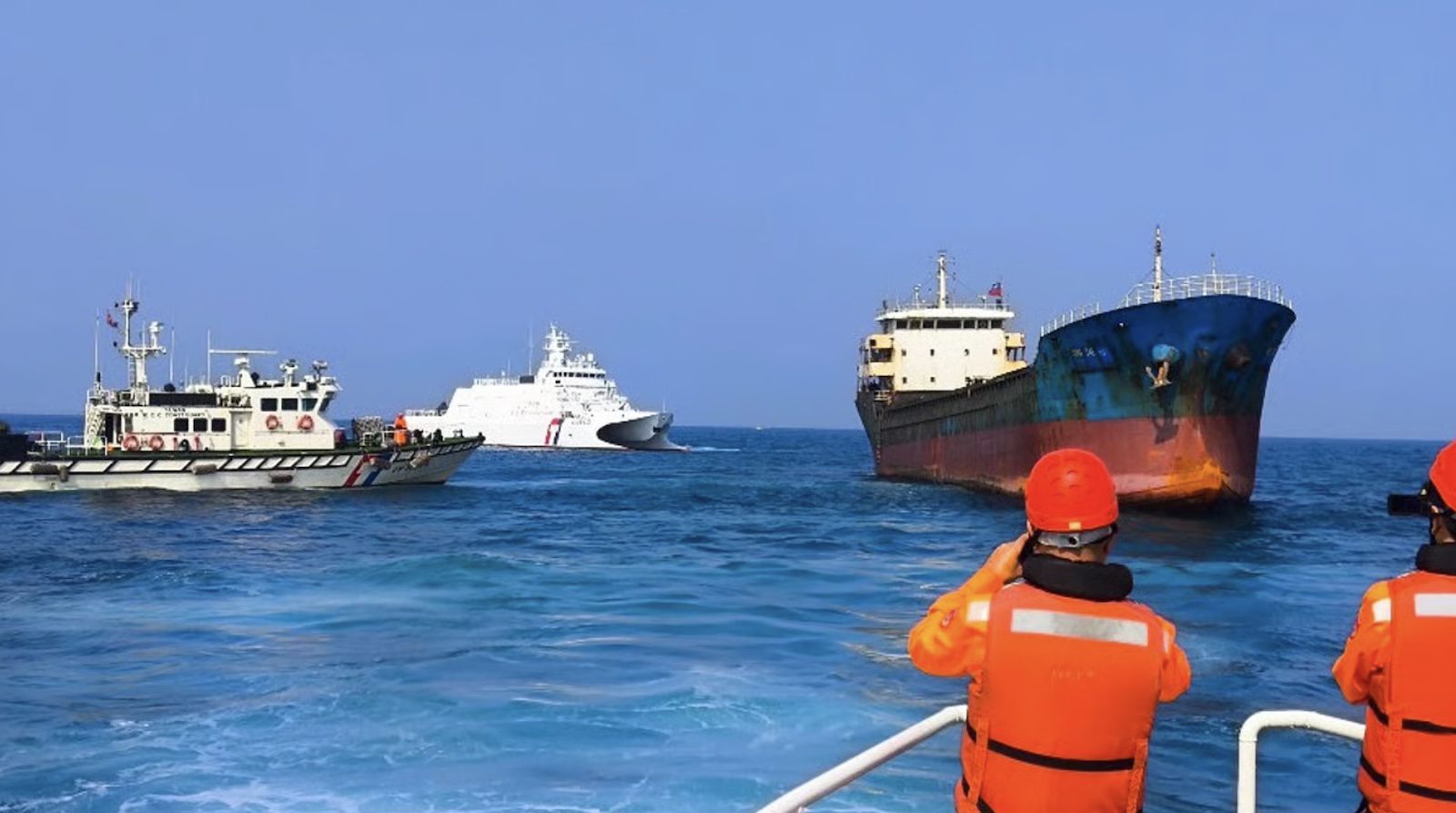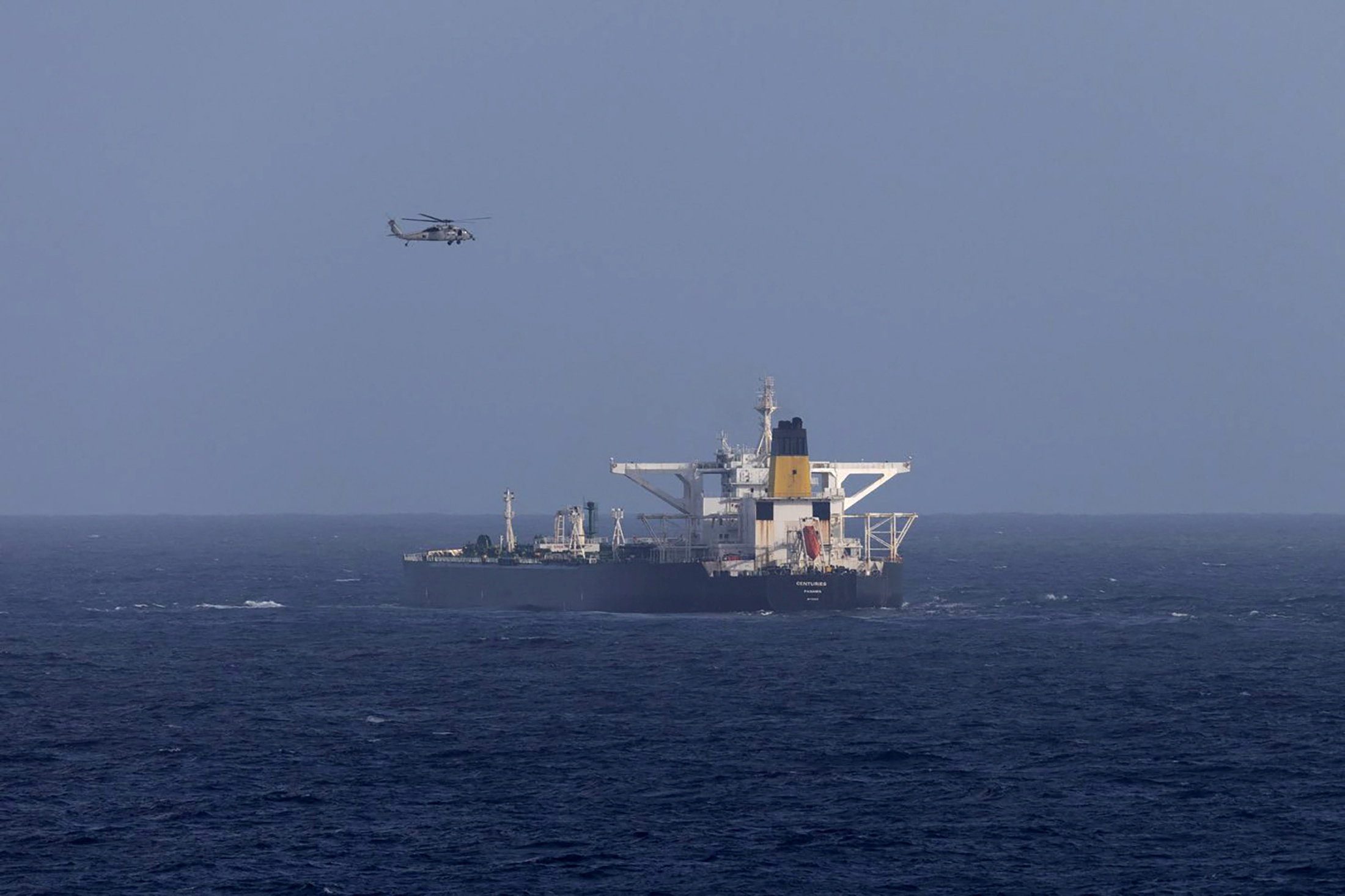By Ben Sharples and Naomi Christie
(Bloomberg) — The global oil glut may soon expand to the ocean.
While traders are already cashing in on the surplus by housing oil in onshore tanks across the globe — including on the tiny Caribbean island of St. Lucia– expanding the storage to tankers at sea may near a point where it becomes profitable, according to Citigroup Inc., Goldman Sachs Group Inc. and IHS Maritime & Trade. A structure called contango, when the price of a commodity to be delivered in the future is higher than if it was sold today, has been moving in the right direction.
Vessels laden with oil, parked offshore from Singapore to the Gulf of Mexico, became a feature after the global financial crisis as the widening contango allowed traders with access to storage to lock in a profit. As the spread expanded again amid a global supply glut, tanker owner Frontline Ltd. fielded inquiries last month about options to house crude at sea.
“Even though the contango is not wide enough yet, it could become so if OPEC continues to overproduce relative to demand,” Frode Moerkedal, an analyst at Clarksons Platou Securities, said by e-mail.
With the Organization of Petroleum Exporting Countries already pumping above its 30-million-barrel-a-day quota for more than a year, Iran’s plans to boost output after sanctions are lifted threaten to worsen the oversupply — a market condition that typically deepens a contango. That could see more oil stored at sea during the fourth quarter, according to Andrew Scorer, an analyst at IHS Maritime & Trade.
The profit opportunity requires a little further steepening of the Brent forward curve at current freight rates, Goldman said in a Sept. 11 report. The widening spread is bringing the potential of floating storage “back into play,” Citigroup said this month.
The spread would need to widen to $4 a barrel during a three-month period for storage to be viable, according to estimates by E.A. Gibson Shipbrokers Ltd. on Sept. 23. Brent crude for November settlement was at a $2.08 discount to the February contract on the London-based ICE Futures Europe exchange at 11:52 a.m. in Hong Kong.
“Once Iranian crude is out in the market, then it might start affecting spot prices for crude oil, which could eventually open up the contango again,” Nikhil Jain, an analyst at Drewry Shipping in New Delhi, said by phone. The spread during a three-month period needs to reach about $3.30 a barrel before floating storage would work, he said.
As Frontline takes calls on storage options, Paddy Rodgers, the CEO of Euronav, one of the world’s largest owners of oil supertankers, sees crude being housed at sea over the next four to five months. The increase in floating storage may also tighten the shipping market and boost freight rates, according to Scorer from IHS.
Junk Ship
Daily rates to hire very large crude carriers on the benchmark Middle East to East Asia route rose 0.3 percent to $70,098 a day on Sept. 25, according to Baltic Exchange data. That’s down 26 percent from the peak in July this year. Rates will average $54,112 in 2015, according to a Bloomberg survey of shipping analysts.
While forecasters see favorable conditions for the offshore contango trade nearing, floating storage bookings are returning to the oil market, according to Clarksons. The demand will also provide a boost to the world’s biggest tanking companies including Vopak NV and Kinder Morgan Inc.
GMS Inc., better known as a recycler of ships, chartered its first oil tanker that was used for floating storage within the last 12 months, according to Chief Executive Officer Anil Sharma. Purchased in 2014, the vessel was leased to a customer that used the ship house crude in the Middle East. The cargo has since been discharged in the Far East.
“It’s more of a black swan event,” said Sharma, who founded the company in 1992. “It’s not something that’s easy to replicate. You have to be lucky, you have to be in the right place at the right time.”
©2015 Bloomberg News

 Join The Club
Join The Club











